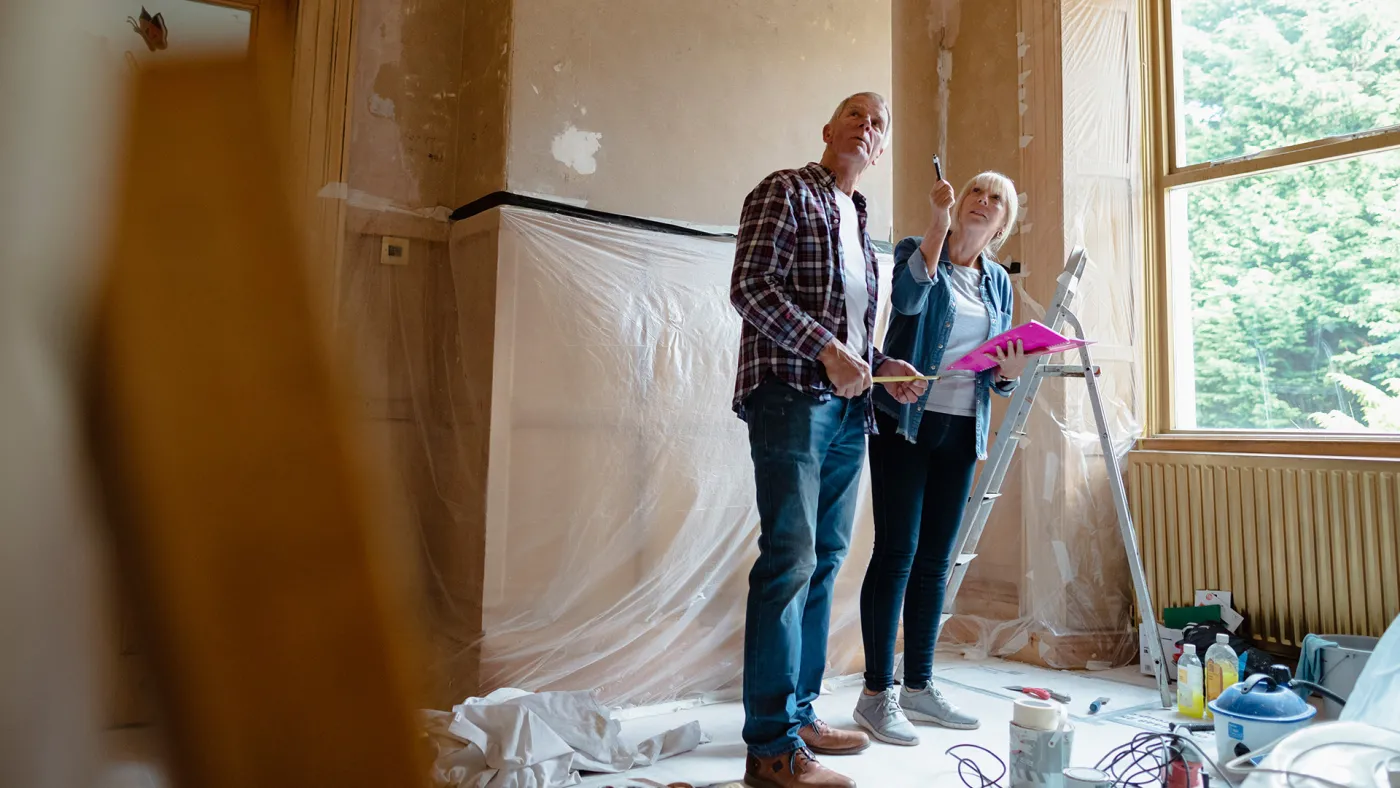
The value of a sound renovation plan
Whether your home is in great shape but you have new requirements, or it needs a serious facelift, a renovation is a good way to bring more of what you want to a space you already have. Here are some tips and ideas to help guide you through the process.
Home improvements can be a wise investment, especially when you know what delivers the best value. Adding or updating bathrooms and kitchens top the list of greatest return for your renovation dollars.
Other solid investments include updating the interior design and flooring, new exterior siding or paint, a new roof, replacing an old furnace, or creating extra living space or a home office from an unfinished area.
Here are the basics to ensure you have enough money followed by a checklist to completing a successful renovation.
Decide how to finance your project
For a smaller project that you're doing yourself, you can simply use your credit card or savings to purchase building materials and fixtures. For a more extensive reno, you could talk to your contractor and just buy the major fixtures and appliances.
Many cards offer extended warranty coverage which is great for these kinds of purchases. If your card offers them, you can also use rewards points to build towards other purchases or travel. Check your card program for details.
For bigger projects, such as a kitchen reno, suite installation, or basement fix-up, a home equity line of credit can help finance it. If the market value of your home is $1,700,000 and the remaining mortgage is $700,000, you can generally access up to 65% of your equity – in this case, $650,000 or more than enough to cover most reno dreams. You'll benefit from affordable interest rates and flexible repayment options while having ongoing access to the cash you need.
If you're looking for a more disciplined way to repay the funds, short or long-term personal loans can provide reasonable interest rates and a structured repayment schedule. Your financial advisor can help you determine which option is best for your personal needs and your project.
Cash in on renovation credits and grants
It's a good idea to see if your renovation qualifies for a grant of some kind – you could save hundreds, even thousands on your project. There are several home renovation grants available from both the federal and provincial governments. Most involve making energy-efficient upgrades and qualifying often requires two energy audits – one before you renovate and one after. If you've never had an energy audit before, the BC Government will help subsidize the cost of your first one.
If you're renovating to accommodate an elderly parent who will be living with you, or are making the changes to help you stay in your home, there are BC home renovation tax credits will pay a percentage for eligible safety precautions such as installing hand rails, walk-in or wheel-in showers and widening passage doors.

Ten steps to a successful renovation
Follow these steps as a guide to a successful renovation.
1. Assess the job realistically
What is your objective? Does the space need improvements, repairs, or a combination of both? Do you just want to update with new flooring and paint or do you need to create more space? Think about a home inspection to assess the state of your home. You might have to change your plans. Before setting your sights on tearing out walls and adding rooms, consider how and where you'll live while the work is being done. Will you need to live elsewhere during the project?
2. Determine what you're capable of doing yourself
Do some research to understand exactly what's involved to complete your project, then list what you'll do and what to contract out. Be honest about your time and skills – not everyone can, or should, be a "do-it-yourselfer" – even a simple paint job might be best left to a professional.
3. Understand necessary permits and inspections
Generally, any changes to the structure or systems of your home will require a permit. Check with your local municipality and double check with your contractor when they begin.
4. Set a budget
If you have a taste for marble, don't price out plain white ceramic tile. Spend time now to pick cabinets, flooring, paint chips, and other details. Talk to people who have renovated and the professionals to get realistic estimates. Keep in mind, renovations are never problem-free. Be prepared for surprises. Add a contingency amount (5-10% of the total) to take care of inevitable unexpected issues that crop up and last minute "extras."
5. Get your funding finalized
If you need to finance the ongoing costs, sit down with your financial advisor and review your project. There are lots of ways to fund your renovation – large or small. And don't forget about your insurance coverage. If your improvements cost more than $10,000, your policy will need to be updated.
6. Find the help you need
Will you need a designer, an architect, a trades contractor, or a general contractor? Ask family, friends, co-workers, experts at home renovation centres, or check online to find the experts you need. Be sure you get references from anyone you plan to hire and check out their past projects. Choose someone you're confident will be around in the future and don't be lulled into the trap of helping someone "get started."
7. Get written quotes
Read them, understand them, and have someone familiar with your project check them. Get everything in writing – who will be doing what, what happens with mid-project changes, and determine the timing of "draws" or payments. Choosing a contractor on price alone could be a big mistake. You want quality, not necessarily the cheapest price. No matter what, don't pay the full amount until the job is done to your satisfaction.
8. Watch the work being done
You may not be an expert, but you're entitled to daily updates and a good working relationship with the people you've placed your trust in. Ask questions, get in there to take a look, know what's being done…and why. If something doesn't seem right, ask. This includes the person doing the work and others. At the same time, be patient and respectful – these people are working on your home. A little treat of coffee and donuts can go a long way to creating good will and a smoother working relationship.
9. Don't forget the finishing touches
In home renovating, it's the details that complete the work. Have you ever been in a house that was new but didn't look "right"? If the finishing isn't done well, it takes away from the overall appearance. The craftsmanship on things like paint trim, baseboards, caulking, and grout lines are what make a space come to life and truly look complete.
10. Sit back and enjoy a job well done!
Home renovations can be challenging, but also extremely rewarding. Take the time to enjoy what you've accomplished.
Thinking about renovating your home? From paint chips to payment, there a lot to talk about. Start off by contacting us or visit your nearest branch to find out how BlueShore Financial can help. OK, we can’t help with floor coverings, but we can help with covering the financing of your renovation.

Have a question? Ask an expert
Ricardo Gerarduzzi Financial AdvisorMutual Funds Investment Specialist
Our team of experienced professionals are here to answer any questions you may have.

